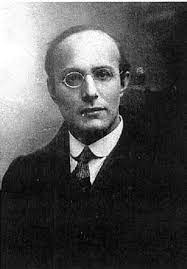Polanyi, Karl

Bio: (1886-1964) Hungarian-British sociologist. Karl Polanyi received his doctorate in law from the University of Budapest in 1912. After graduating, Polanyi practiced law, and was one of the founders and later secretary of the Hungarian Radical Party. During the First World War, he took part in the war as a soldier of Austria-Hungary. After the end of the war, he moved to Vienna, where he worked as a journalist, before emigrating to London in 1933, due to the rise of fascism in Austria. In London, Polanyi worked as a journalist and lecturer at the Workers' Education Association. He moved to the United States in 1940, where he taught at Bennington College and Columbia University. Polanyi spent the last years of his life in Canada.
In the book The Great Transformation (1944), Polanyi criticized the self-regulating economy of the free market, because he considered it to be economically unsustainable and that it would destroy the social order. The market economy promotes extreme individualism that destroys social cohesion, which is necessary for normal social cooperation. Polanyi developed a substantivism, a theory of economics in which the economy is viewed as in the state "embeddedness", that is, the view that the economy is interconnected and constrained by wider social relations. In pre-industrial societies, the economy was organized through socially regulated relations of reciprocity and redistribution. He believes that two parallel processes are taking place in modern capitalism, on the one hand, market logic is spreading to all areas of social life, while, on the other hand, social protection mechanisms are being developed to protect society from the most harmful consequences of the self-regulatory market system. Free-market capitalism seeks to destroy relations of reciprocity and redistribution, but social protection mechanisms, such as those that emerged in England in the early 19th century, act as a resistance to that intention. Although Polanyi was inspired by Marxist theory and ideology, he believed that social protection measures would prevent the whole society from being divided into two clearly separated and opposing classes, as Marxist theory assumed.
Polanyi's intellectual legacy is large and includes significant contributions to several social sciences: anthropology, economics, history, sociology, law, and political science; as well as contributions to social and political philosophy. He advocated leftist ideologies throughout his life but was never a doctrinal Marxist.
Fields of research
Anthropology Capitalism Economy Empire History Individualism Law Market Politics Protests Social PolicyTheoretical approaches
Substantivism, EconomicMain works
The Great Transformation (1944);
Trade and Markets in the Early Empires (1957);
Dahomey and the Slave Trade (1966);
Economy and Society: Selected Writings (2018).

